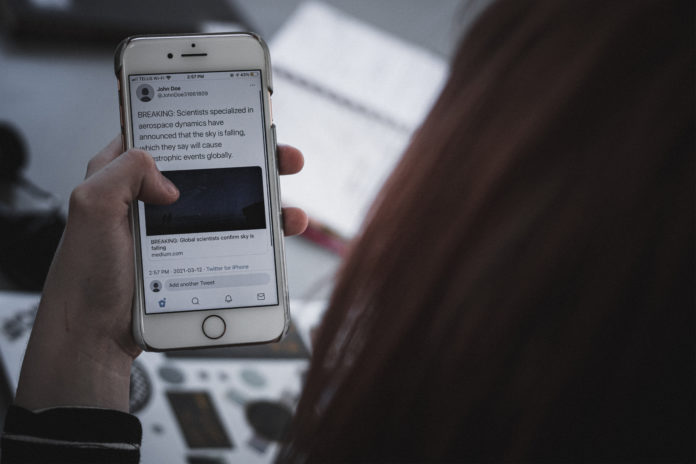Patrice Cammarano, the co-founder of the St. Thomas Mental Health Society, said doomscrolling can sometimes stem from social influence and that people doomscroll because they fear missing out on the most current news.
He said social media is addictive, and the colours and patterns make people more engaged. Logging onto an app can sometimes send a signal and increase the amount of dopamine in the brain.
“That transmitter is associated with pleasure,” Commarano said. “Despite the negative consequences of continuous scrolling, being on [something like] TikTok is something you feel is enjoyable and you will receive pleasure from the neurotransmitters.”

The term “doomscrolling” became one of Webster Dictionary’s top words of the year. The site defines the word as reading through bad news that appears across social media feeds. Usually, the news that’s scrolled through endlessly is about COVID-19.
Olivia Parker, a St. Thomas University communications professor, said social media is algorithm-based. It’s easy to become trapped in a loop and start falling into a spiral of the platform’s social media feed.
“You’re interacting with the content you’re clicking on because [it’s what you’re interested in] so the algorithm will learn to feed it back to you.”
Parker said in the past year, social media became so ingrained in people’s lives that many find technology is their only way to feel connected.
While doomscrolling, it’s easy to come across misinformation that hasn’t been flagged as misinformation. There’s potential to be exposed to news that negatively affects the reader.
“You have to work against the algorithm,” Parker said. “You have to start clicking on articles when they come across your screen that cover a wide range of topics and also have positive connotations.”
Cammarano said he recommends that people understand how much time they spend on social media and how it can affect them.
“Is seeing only negative stuff bringing their morale down? Is it meaningful or is it simply scrolling and scrolling? Because instead, they could do other types of self-care. Things that enhance their mental health and really promote their well-being.”

